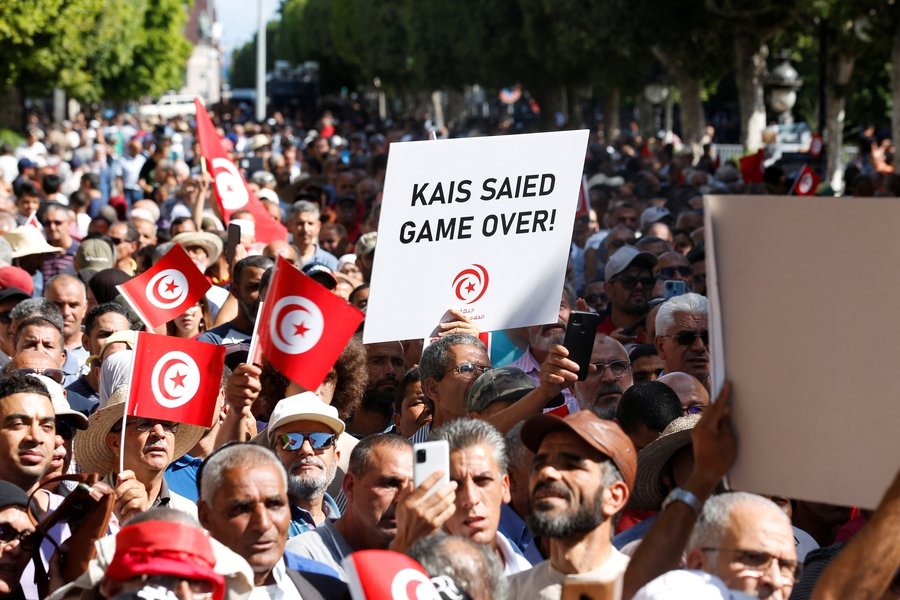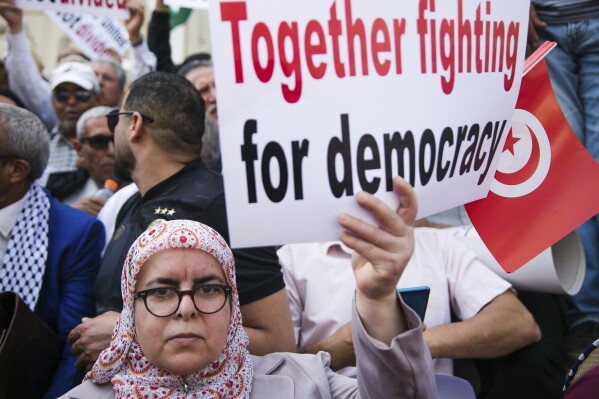Tunisians are set to stage nationwide protests on Friday against what organizers call a surge in authoritarianism, as controversy swirls around the country’s upcoming presidential election scheduled for October 6.

The newly-formed “Tunisian Network for the Defense of Rights and Freedoms” is spearheading the demonstrations, aiming to highlight concerns over candidate arrests, ballot disqualifications, and lifetime bans from politics.
Mohieddine Lagha, Secretary-General of the Tunisian League for Human Rights, explained the motivations behind the protests: “We’re reacting to the violation of rights and freedoms we’re seeing in Tunisia today, and to citizens being deprived of their right to run in the presidential vote.”
Central to the controversy is the Independent High Authority for Elections (ISIE), which has clashed with judges over candidate eligibility. Critics accuse the commission, whose members are appointed by President Kais Saied, of lacking independence.

The ISIE has rejected several election observer applications and refused to add three candidates to the ballot who won court appeals challenging their earlier rejections. One such candidate is former health minister Abdellatif Mekki, arrested in July on what his attorneys claim are political charges and initially banned from politics for life.
Ahmed Neffati, Mekki’s campaign manager, told The Associated Press, “We called for large participation in this protest, hoping to pressure for a massive mobilization. Tunisians won’t let go of their right for a free and democratic election.”
The political climate in Tunisia has grown increasingly tense in recent months. President Saied sacked the majority of his cabinet last month, while critics decry a wave of arrests and gag orders on leading opposition figures as politically motivated.

International organizations have expressed concern over the situation. The International Crisis Group recently described Tunisia’s political landscape as “deteriorating,” while Human Rights Watch has called on the election commission to reinstate disqualified candidates.
Bassam Khawaja, deputy Middle East and North Africa director for Human Rights Watch, stated, “Holding elections amid such repression makes a mockery of Tunisians’ right to participate in free and fair elections.”
As Friday’s protests approach, tensions continue to mount in this North African nation, once hailed as a beacon of democracy in the region following the 2011 Arab Spring. The outcome of these demonstrations and the subsequent election could have far-reaching implications for Tunisia’s democratic future.


